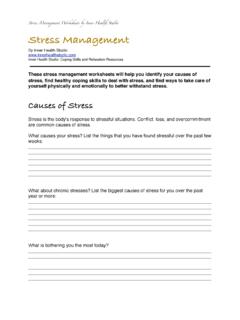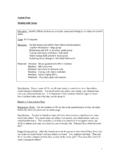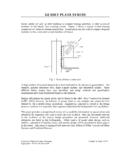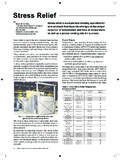Transcription of Don’t Stress Out About It: Stress Management for Teens ...
1 Don't Stress Out About It: Stress Management for Teens Grades 5-9. 45 Minutes Program Introduction Don't Stress Out About It: Stress Management for Teens is a 45-minute program and 12- lesson plan Health Quest curriculum designed to introduce viewers 10-16 years old to the tools which can help them deal with Stress and develop life long habits of health and wellbeing. Program Objectives: After viewing the program and participating in the lesson plans, viewers/participants should be able to: Define and identify Stress - its causes and effects. Describe the relationship between Stress and the body, mind, emotions, and spirit.
2 Understand the physiology of Stress . Describe the fight or flight response.. Demonstrate the role of diet, exercise, sleep, and relaxation in reducing Stress . Explain the importance of drinking plenty of water in managing Stress . Identify the role that negative self talk plays in creating Stress . Define strategies for reducing negative self talk. Discuss the relationship between technology and Stress . Understand the role of mismanaging anger in creating Stress . Identify their own anger style or hot stone.. Define strategies to cool down/drop their hot stones. Understand the role that meditation plays in managing Stress . Design a personal wellness plan.
3 Summary of Program: Don't Stress Out About It introduces the concepts of Stress and health as it follows a group of the students who are involved in HEALTH QUEST a 12-week Stress Management course offered at Sunset Middle School in Longmont, Colorado. The video sections and a 12 lesson plan and curriculum help viewers are designed to replicate the lessons taught in the class. The video is divided into the following sections: Introduction andTitle Sequence introduces viewers to the concept and experience of Stress . What Is Stress ? presents the following definition of Stress : Stress IS A RESPONSE TO THE DEMANDS PLACED ON US IN OUR LIVES.
4 The Physiology of Stress presents the origins of Stress as a response to physical danger and discusses the physiological changes that take place in the fight or flight response. What Causes Stress ? explores the idea that Stress affects us in four ways: physically, mentally, emotionally, and spiritually. What Is Health? introduces the following definition of health: HEALTH IS BRINGING BALANCE TO OUR BODY, MIND, SPIRIT AND EMOTIONS. The section introduces the concept that anything in our lives can become stressful and that Stress Management involves learning how to manage our response to situations in our lives so that the demands placed on us don't Stress us out.
5 Stress and the Body describes the ways in which Stress can affect our body and discusses different ways to manage physical Stress through: Relaxation techniques including deep breathing, massage, and centering. What we eat and drink in particular, emphasizing the importance of drinking water. Sleep Exercise Stress and the Mind introduces the concept of Negative Self Talk and discusses the dangers of perfectionism and the Stress that technology adds to our lives. Youth participants in the program present their strategies for changing negative self talk. Stress and the Emotions discusses how our emotions are the filter through which we see the world.
6 It presents the concept of Mismanaged Anger, using the metaphor of four hot stones to describe four different styles of mismanaging anger. The four hot stones are: 1. The Silent But Deadly Stone 2. The Volcanic Stone 3. The Razor Stone, and 4. The Revenge Stone. The following strategies for Cooling Down Our Hot Stones are presented: Humor Crying Thinking before you act Getting physical Doing something creative Extended learning sections are included on: Art Therapy Building a Crisis Kit including using journaling and music as ways to relieve Stress Meditation Stress and the Spirit discusses the importance of making connections with others through volunteering, mentoring, joining groups, and other community involvement.
7 The final statements or Lessons Learned by the Health Quest students are included in this last section. Introduction to the Health Quest Curriculum: The Health Quest curriculum is based on a program initiated at Sunset Middle School in Longmont, Colorado. The Health Quest Stress Management Program involves a community partnership in which health and wellness professionals volunteer to share their knowledge, strategies, and techniques for identifying and managing Stress with a select group of middle school students. The program was developed by teacher Linda Bartlett in response to her growing awareness of the changes she was seeing in her students' health issues.
8 Here is how she describes the beginning of Health Quest: When I began teaching in the mid 70s, I can remember checking in the nurse's office to see if any of my participants had medical conditions requiring my attention. I skimmed a two-page list of participant names attached to a clipboard. Times change. By the late 90s, the list of children in my school diagnosed with medical conditions needed a three-ring notebook to contain it. From asthma and allergies to migraine headaches and depression, the number of my students and students across our nation with health concerns was growing at an alarming rate. Why? To seek an answer, I approached a member of our local Chamber of Commerce who introduced me to a vast network of health care professionals in our community.
9 Together, we began an exploratory course for Teens to examine the most prevalent health issues facing today's youth. By the end of the first 20-week seminar, the participants unanimously identified Stress as a primary contributor to the health issues they faced. From their recommendations, participants, instructors and health professionals joined together and Health Quest: A Stress Management Seminar was born.. In the beginning, Health Quest was more of a smorgasbord of guest speakers. Committed to the program, many of the doctors, nurses, and complementary wellness practitioners now return yearly. Stress Management consultant and writer, Dr.
10 Brian Luke Seaward has joined Linda as an active participant in the program. As they continue to work together, they have joined pedagogical skills with the content knowledge of the visiting health experts. Health Quest has grown and evolved to include a host of themes and activities to fully engage participants to take an active role in their own health and well-being; to see themselves as active participants rather than passive victims in a hectic and often rapidly changing world. Health Quest is not just for kids, however! Instructors, administrators, secretaries, custodians, and parents can benefit from a better understanding of Stress and how to incorporate skills and strategies for managing Stress , coping with change, and maintaining balance in their personal and professional life.








